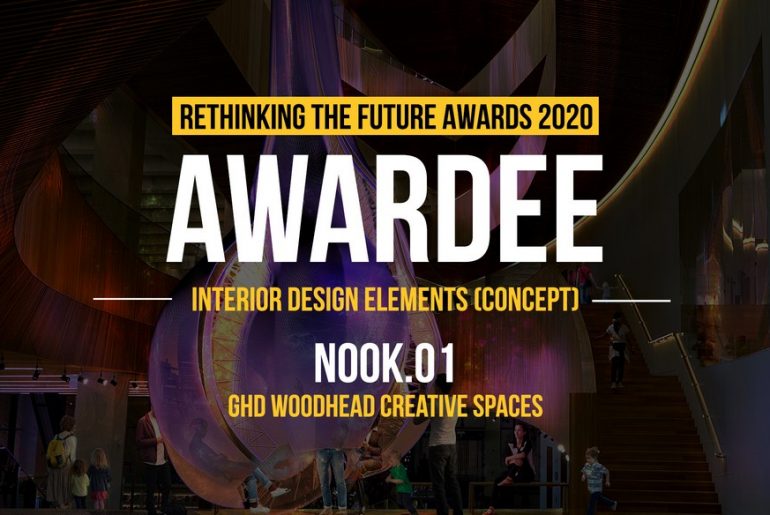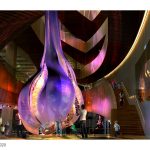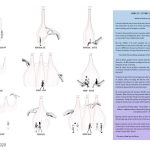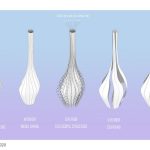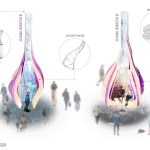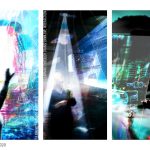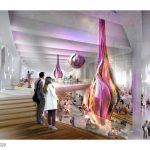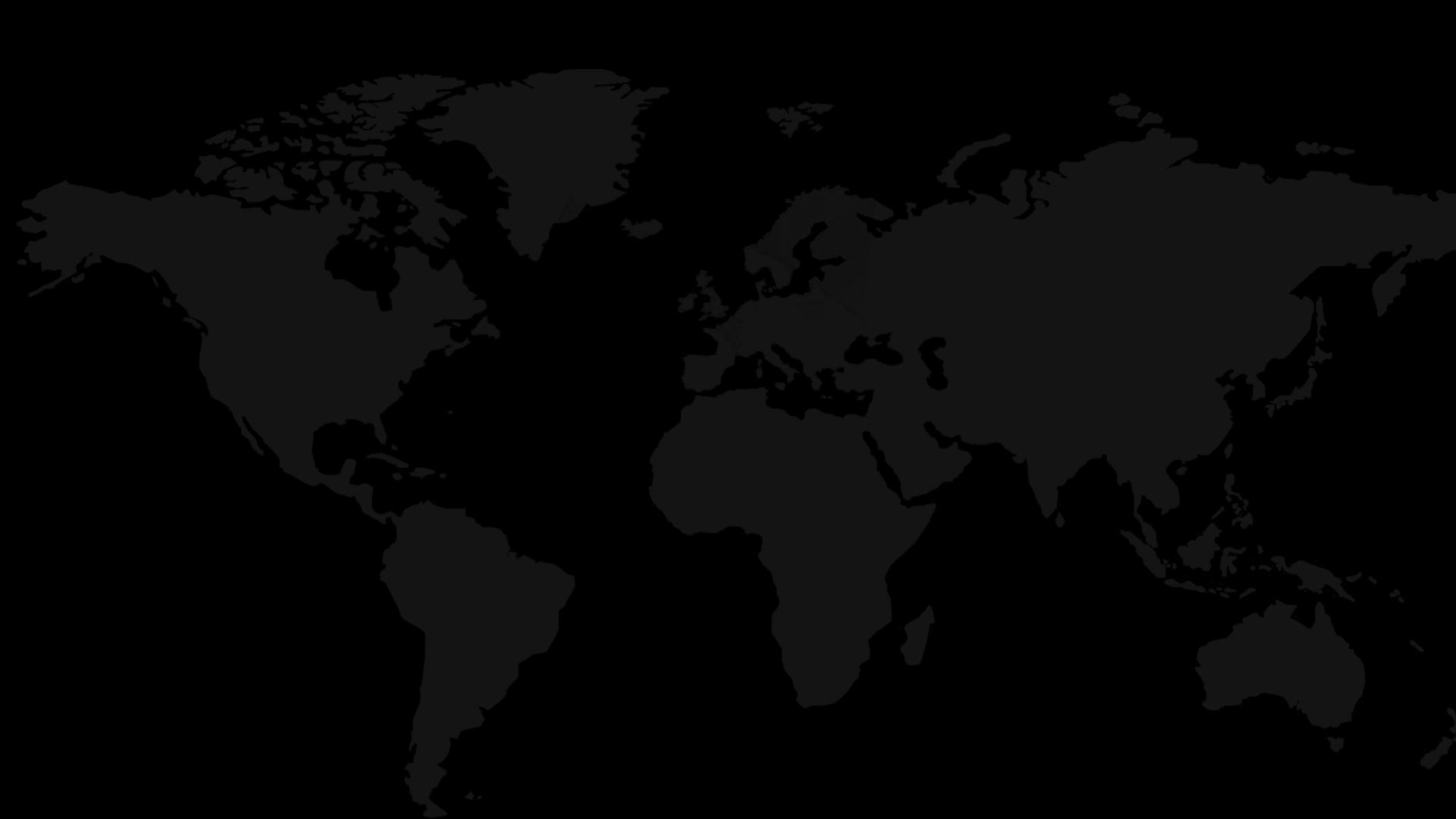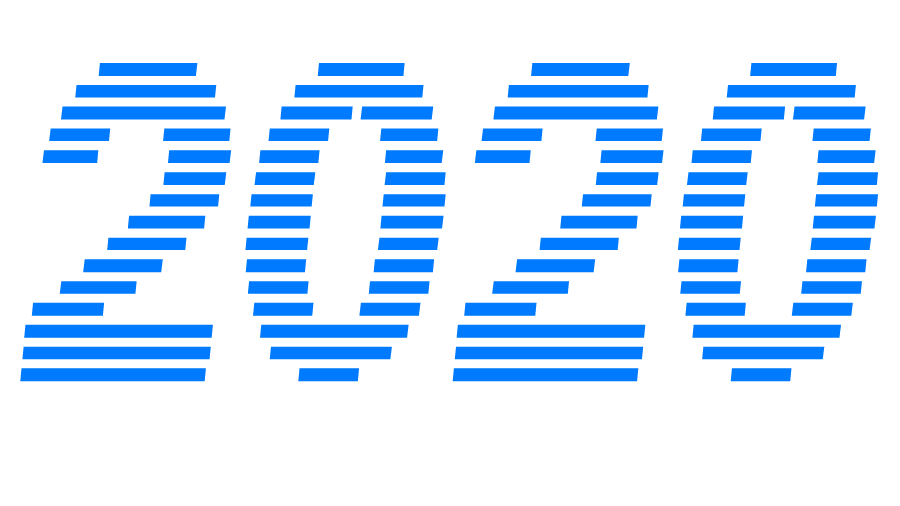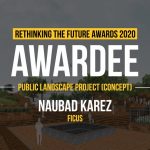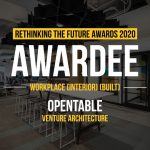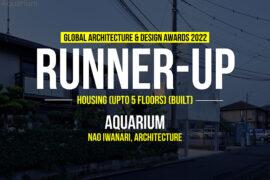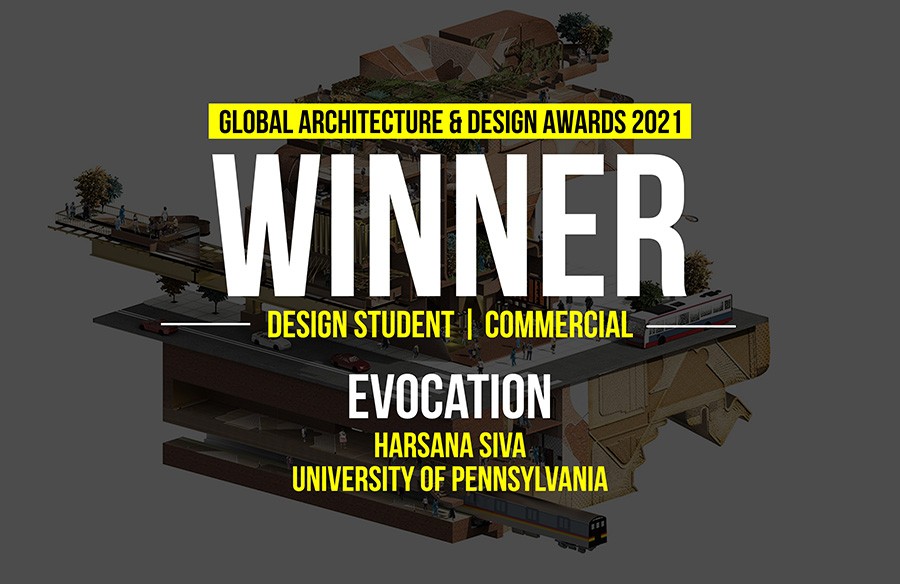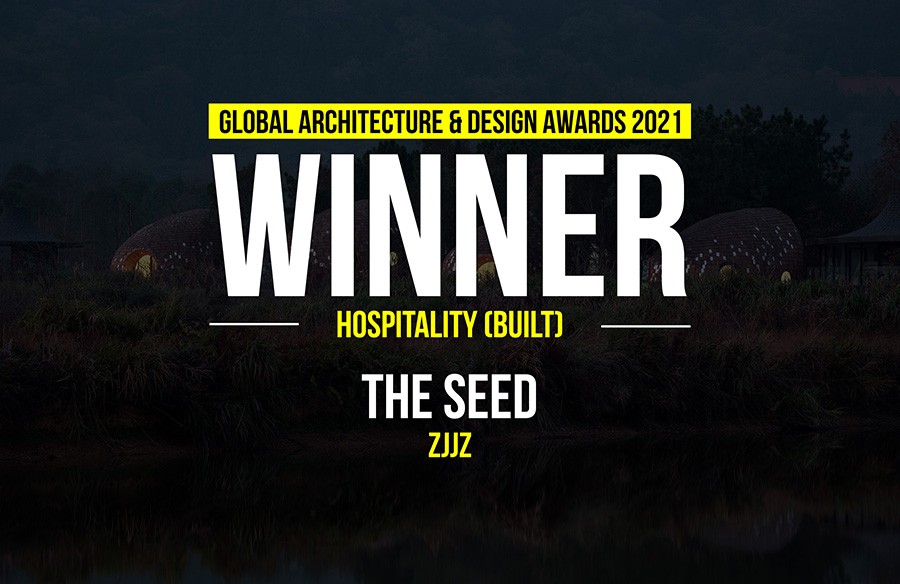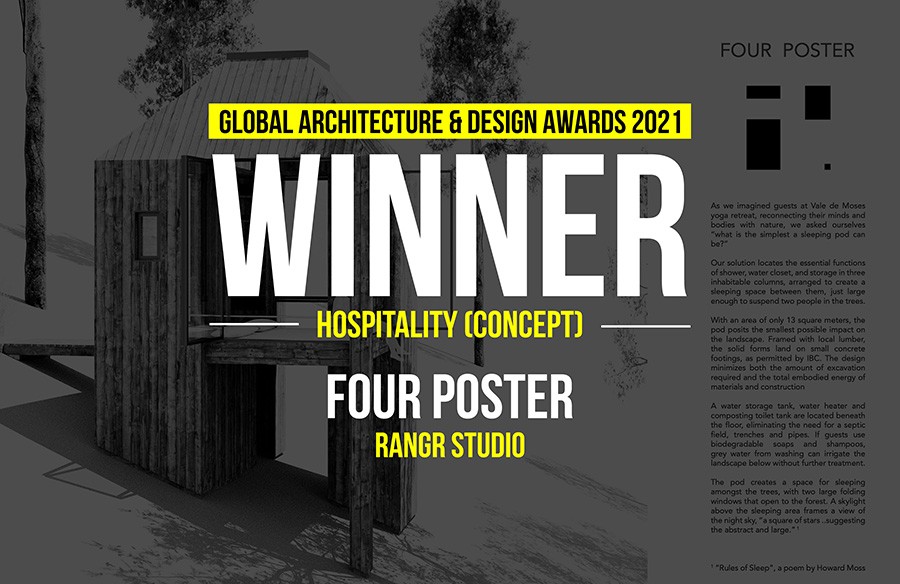In the most fantastical works of science fiction and in the most prosaic speculations towards the future, none predicted how the advent of the internet would become the defining agent in shaping society, culture, technology, and the contemporary condition.
Rethinking The Future Awards 2020
Second Award | Interior Design Elements (Concept)
Project Name: Nook.01
Studio: GHDWoodhead Creativespaces
Location: New Zealand
Team: Harry Street
Olivia Pearson
Angus Beaton
Kelly Hedger
Hanin Rajeh
Kusay George
Reed Wurster
Jamie Barter
Allison Stout
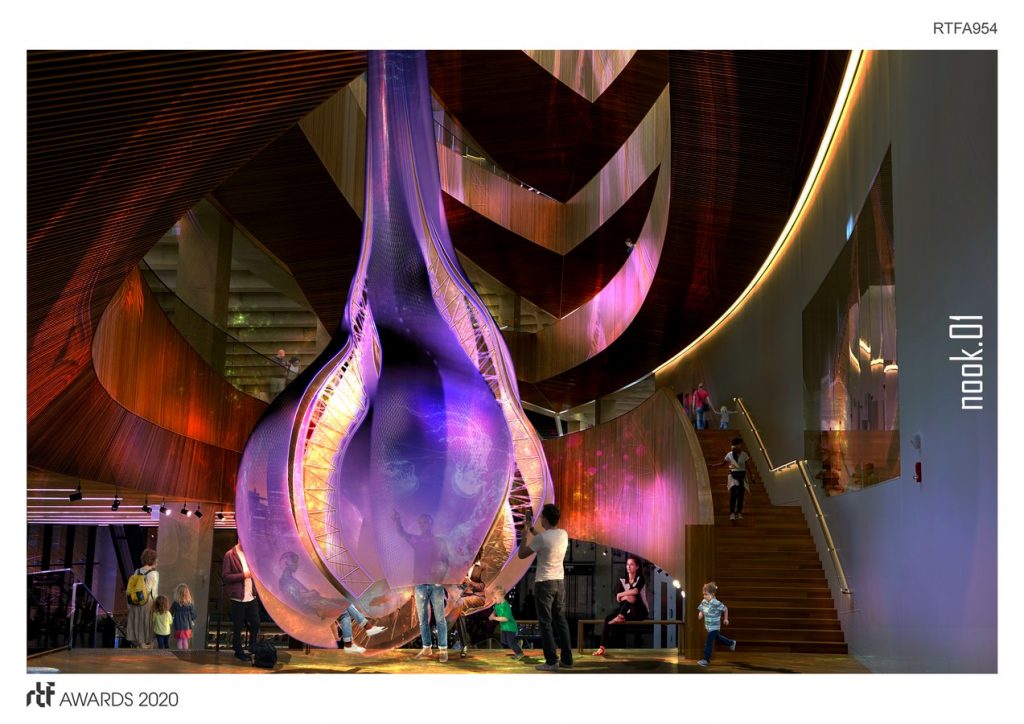
The futurists that preceded the internet’s conception could be forgiven for thinking this revelation would bring the second age of enlightenment. Never in human history has information been more available and more accessible. A library of Babel finally manifest.
More than 3.2billion of the world’s population have access to the entirety of known human accomplishment, past, and present, in their pocket, yet it’s suggested we are no more informed now than we were in 1989, before the dawn of worldwide web; a comparative dark age.
Does this pose the question; in the age of information why do we remain uninformed?
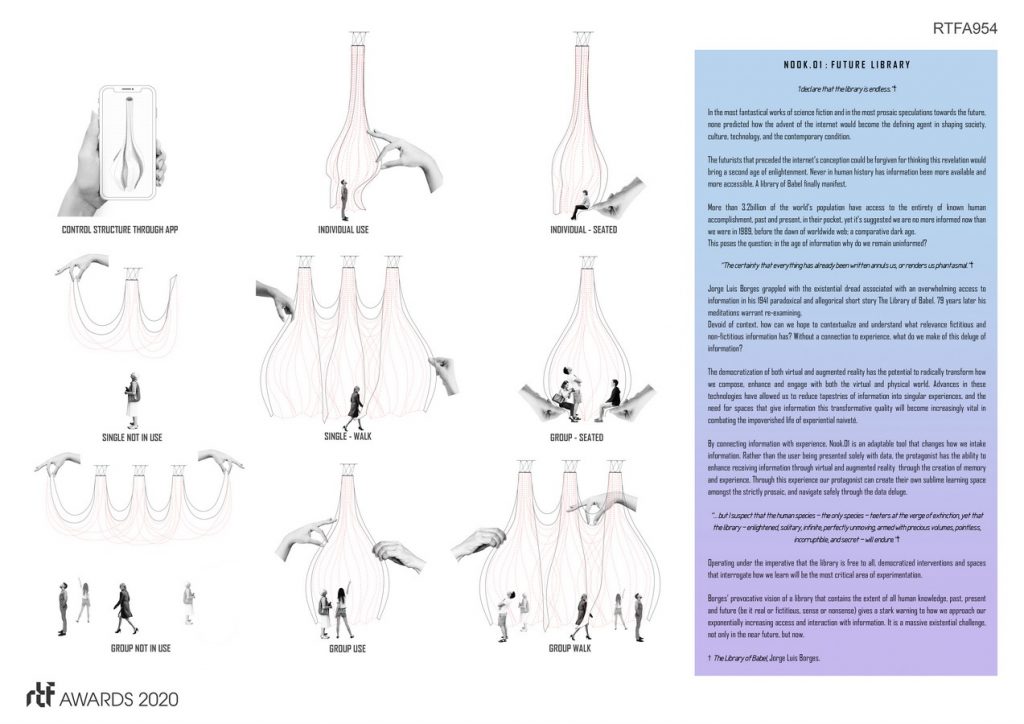
“The certainty that everything has already been written annuls us, or renders us phantasmal.”†
Jorge Luis Borges grappled with the existential dread associated with overwhelming access to information in his 1941 paradoxical and allegorical short story The Library of Babel. 79 years later his meditations warrant re-examining.
Devoid of context, how can we hope to contextualize and understand what relevance fictitious and non-fictitious information has? Without a connection to experience, what do we make of this deluge of information?
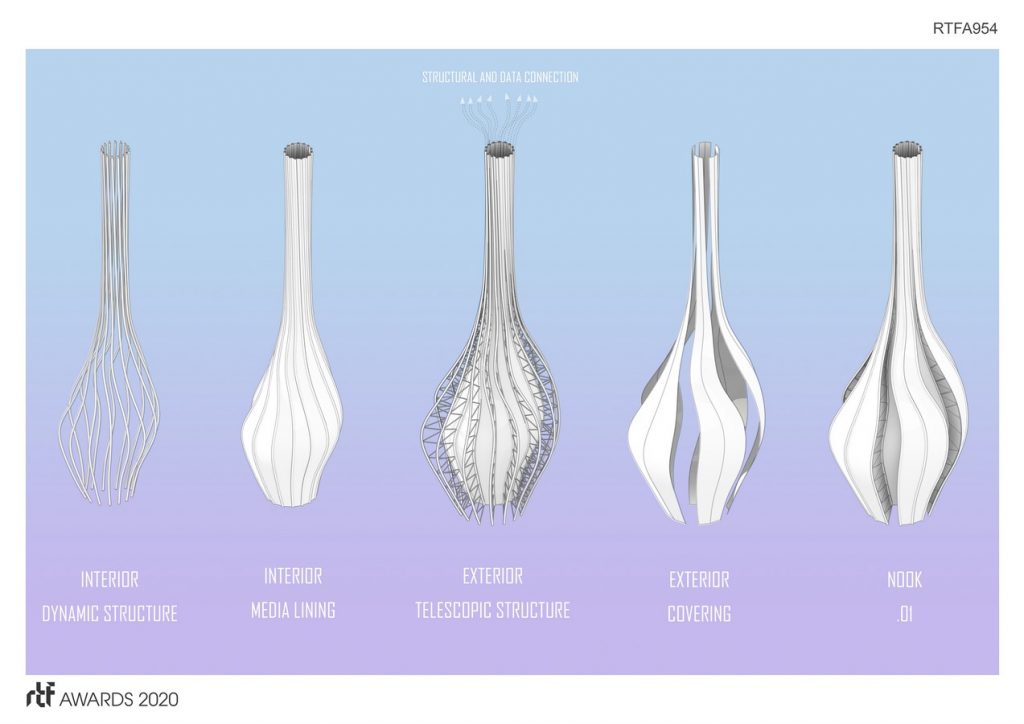
The democratization of both virtual and augmented reality has the potential to radically transform how we compose, enhance and engage with both the virtual and physical world. Advances in these technologies have allowed us to reduce tapestries of information into singular experiences, and the need for spaces that give information this transformative quality will become increasingly vital in combating the impoverished life of experiential naiveté.
By connecting information with experience, Nook.01 is an adaptable tool that changes how we intake information. Rather than the user being presented solely with data, the protagonist has the ability to enhance receiving information through virtual and augmented reality through the creation of memory and experience. Through this experience, our protagonist can create their own sublime learning space amongst the strictly prosaic, and navigate safely through the data deluge.
“… but I suspect that the human species – the only species – teeters at the verge of extinction, yet that the library – enlightened, solitary, infinite, perfectly unmoving, armed with precious volumes, pointless, incorruptible, and secret – will endure.”†
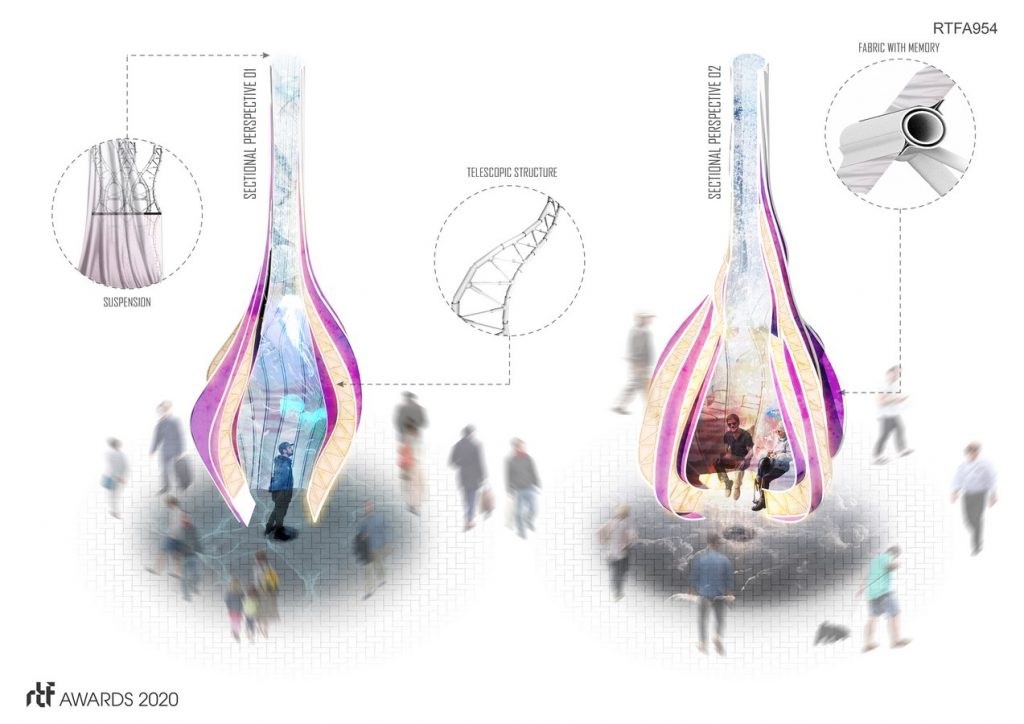
Operating under the imperative that the library is free to all, democratized interventions and spaces that interrogate how we learn will be the most critical area of experimentation.
Borges’ provocative vision of a library that contains the extent of all human knowledge, past, present, and future (be it real or fictitious, sense or nonsense) gives a stark warning to how we approach our exponentially increasing access and interaction with information. It is a massive existential challenge, not only in the near future but now.
ARCHITECTURE, CONSTRUCTION & DESIGN AWARDS 2020 IS HERE
Over more than half a decade Rethinking the Future has been a leading organization committed to providing an international platform to not only recognize and acknowledge design talents from all over the world but also to celebrate and share the knowledge that created through a plethora of awards, events and academic dialogues in the field of architecture and design.

